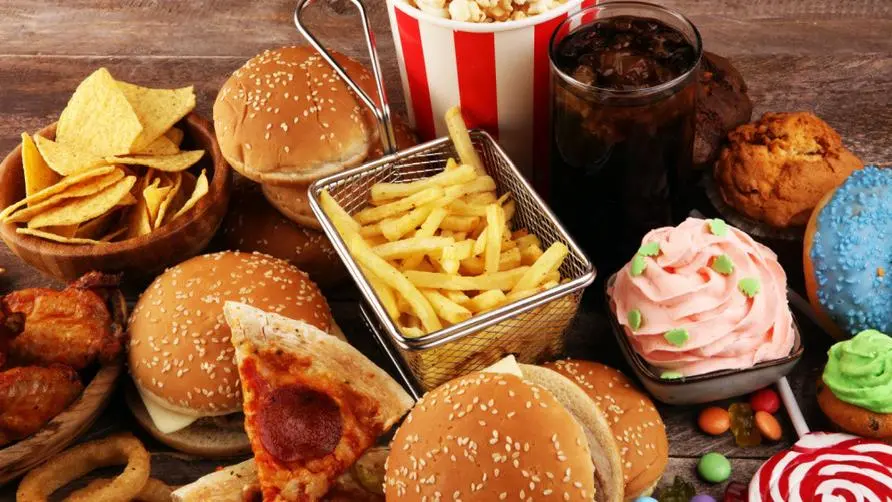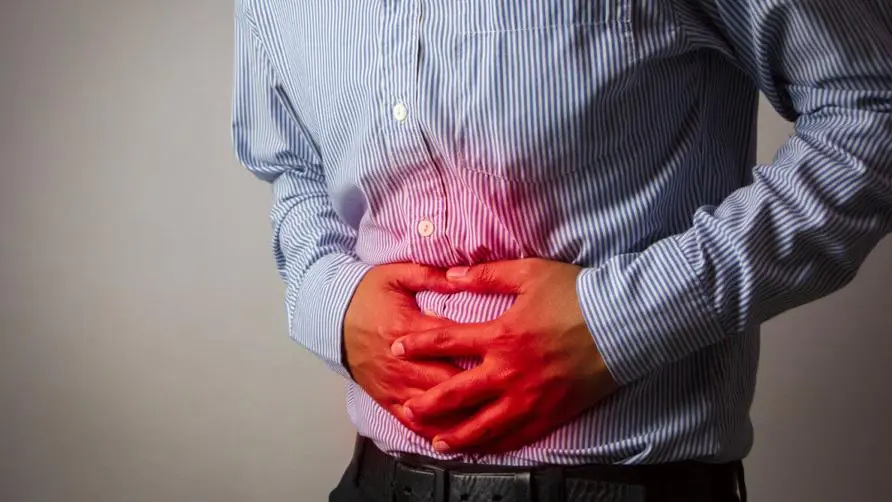The superstar was mistakenly reported to be suffering from "myocardial infarction"! More than 50% of patients died before arriving in hospital? Doctors warn: Cold snaps are not the only risk

Liu Wenzheng, the superstar of the generation who is known as the ancestor of the “Chinese singing idol”, was recently shockingly reported to have passed away in the United States in November last year. After tracking by the media, it was found that the news of his death was a misinformation. However, his condition of “myocardial infarction” has also regained public attention. focus on. Which groups need special protection against the risk of myocardial infarction? What preventive measures can people take? Please see the compiled report of “healthorn”.
More than half of patients die before arriving at hospital? What symptoms warrant suspicion of myocardial infarction?
According to information published by the Taiwan Ministry of Health and Welfare, “myocardial infarction” is defined as a sudden almost complete or complete blockage of the blood vessels that supply nutrients and oxygen to the heart muscle cells, causing the blood supply to the myocardium to collapse. Streaming interrupted. If the obstruction continues, it will lead to myocardial hypoxia damage or necrosis, which will further reduce the heart function. If the blood vessels with blocked blood flow cannot be opened in a short period of time, it will cause permanent damage or even death of myocardial cells, and produce subsequent complications, such as malignancy. Arrhythmia, heart failure, etc. are more likely to cause death or irreversible damage.
Dr. Chen Jieyu, the attending physician of the Department of Cardiology at Cathay Hospital, said in a previous interview that when a cold wave hits, it may cause the blood vessels in the body to contract violently, causing plaques in the blood vessels to rupture and form “thrombi”. In severe cases, people may lose their lives within a few hours; Almost half of the patients in the clinic died before arriving at the hospital. If people experience persistent chest tightness, chest pain, cold sweats, palpitations, dizziness, and excessive panting, it may be a precursor to myocardial infarction. In addition, if there is a first-degree relative in the family, the male and female have a history of cardiovascular disease before the age of 55 and 65 respectively, and they have the above symptoms, they need to go to the hospital immediately for further examination.
Can young people escape the clutches of mental illness? Doctors reveal 8 high-risk groups for myocardial infarction
As for the high-risk groups for myocardial infarction? Can young people escape the clutches of heart disease? Dr. Qiu Yiqi from the Department of Cardiology at Guangtian General Hospital pointed out in a previous interview that the mortality rate of acute myocardial infarction is extremely high. Research statistics have found that more than 60% of patients are declared dead before receiving treatment at the hospital. The most common risk factors for acute myocardial infarction are still high blood pressure, high blood sugar, and high cholesterol. Smoking, obesity, and elderly people may also increase the risk of cardiovascular disease. In addition, cold weather is indeed the season when the disease is most likely to occur. When the temperature becomes cold, blood vessels constrict. When the already narrowed blood vessels contract violently, it is more likely to increase the chance of acute myocardial infarction.
Is the proportion of myocardial infarction among “young adults” increasing year by year? Dr. Qiu Yiqi said that although the majority of acute myocardial infarction is still among the elderly, there is indeed an increase in patients aged around 3 and 40, especially those who have high blood pressure, are obese, and smoke. If blood pressure, blood sugar, and blood lipids are not well controlled when you are young, you may also increase your risk of myocardial infarction in old age.
“Taiwanese people eat too much in their daily diet. The proportion of obesity and high blood sugar among young people has naturally increased. Related cardiovascular problems are of course showing a trend of younger people.” In addition to the above risk factors, Dr. Qiu Yiqi also explained that they include overwork, excessive stress, Reversal of day and night, irregular sleep, and prolonged sitting and lack of exercise are all risk factors that may increase the burden on the body. People must pay attention to this.
Can patients with myocardial infarction exercise normally? Could “high-intensity strength training” cause heart problems?
Dr. Chen Jieyu believes that if myocardial infarction is properly treated, patients can actually exercise as usual without being affected. What is important is that you should maintain regular medication and go to the hospital for regular check-ups. Once controlled, there is no guarantee that blood vessels will become embolized again in 3-5 years. If you exercise without proper control, myocardial infarction may still recur suddenly.
Dr. Chen Jieyu reminds patients with cardiovascular disease to avoid overtraining the “upper body” when doing weight training, so as not to rapidly increase the resistance of the heart. It is also necessary to appropriately strengthen the muscle training of the lower limbs, or to implement more gentle exercises instead, which can not only adjust the lifestyle and lose weight, but also improve blood pressure, blood lipids and blood sugar.
Dr. Chen Jieyu also pointed out that if people find that they have chest tightness, discomfort, or severe wheezing when climbing stairs, walking or exercising, they should first evaluate their cardiovascular status or seek medical examination, and then choose appropriate exercises according to their physical condition. mode is a safer approach.
A must-learn to save your family when the cold snap hits! 4 steps to save life in acute myocardial infarction
During high-risk moments such as cold snaps, which are prone to myocardial infarction, the public must pay more attention to the importance of “first aid”. Dr. Huang Xuan, an expert in critical care medicine, said that the time to rescue patients with sudden myocardial infarction or sudden death is very short, and the survival rate drops by 10% every minute; and as long as the heart stops for more than 6-8 minutes, it may be difficult to save. Therefore, if you encounter a family member or someone you live with who suddenly becomes unconscious, remember not to panic and follow the 4 first aid steps of “Calling Piezo” one by one:
Call the patient. The first step in first aid is never chest compressions or electric shocks, but “calling” to make sure the patient is breathing and responding when called.
Call someone else to dial 119. Or ask others to help with first aid, and quickly find and remove the Automated External Defibrillator (AED).
Chest compression (CPR). Before chest compression, first untie the patient’s clothes and first confirm whether there are any foreign objects around the patient’s chest compression position and in the mouth. The most ideal rescue position is for the rescuer to kneel next to the patient in a high kneeling position, with the knees and shoulders the same width, and the buttocks should not touch the calves.
When performing chest compression to rescue, place the heel of your palm in the middle of the line connecting the patient’s two nipples, and then press down 5 cm with your elbow straight. During the process of applying pressure, your elbows must not be bent. You should rely on the strength of your body to press up and down, with a compression frequency of 100-120 times per minute and 2 times per second.
“Electric” shock, use AED to shock the patient. When someone else is turning on the AED, do not stop pressing your chest. After turning on the AED power, follow the instructions on the instrument and stick it to the designated position on the patient’s body, and then deliver the electric shock; stay away from the patient during the electric shock. After the electric shock is completed, return to step 3 and continue to compress the chest. During this process, the AED may ask the rescuer to stay away from the patient and analyze the patient’s heart rhythm.
Finally, Dr. Huang Xuan advises the public that in the event of an emergency, they can install the “National Emergency AED” app developed by the Taiwan Ministry of Health and Welfare in cooperation with the Taiwan Medical College of Emergency Medicine. After opening the app, they can assist in dialing 119 immediately. , Provide the AED location closest to the scene, and immediately provide teaching on first aid procedures, including movements, and the rhythm of chest compression during first aid.
Do you have eyebrows when soaking in hot springs or going out to keep warm? How to prevent myocardial infarction?
Dr. Chen Jieyu said that the elderly love to soak in hot springs. They should remember that their heart should be higher than the water surface when soaking in hot springs. Those who take blood pressure medication should wait 1-2 hours before soaking in hot springs. Do not alternate between hot and cold springs to avoid serious heart discomfort. In addition, the elderly should remember to bring warm items when going out, add more clothing in the morning and evening, and pay special attention to protecting the neck and trunk to keep the temperature of the blood flow to the heart and brain constant.
In addition, the Taiwan Ministry of Health and Welfare, Health Promotion Administration also reminds the public to do the following 5 things in life to prevent myocardial infarction:
Control the three high risks: According to surveys, the risk of hypertension patients suffering from heart disease, stroke, and kidney disease within 5 years is 1.9 times, 2.8 times, and 1.7 times that of the general population respectively. People with three high blood pressure problems should properly control their condition, regularly measure and record their blood sugar, blood pressure, and blood fat data, and take medication according to the doctor’s prescription and follow up regularly.
Actively quit smoking: Whether you smoke directly or passively inhale secondhand smoke, you will increase the risk of heart disease. The benefits of quitting smoking on the heart can be seen immediately. One year after quitting smoking, the chance of suffering from coronary heart disease can be reduced by 50%; and five years after quitting smoking, the chance of stroke is almost the same as that of a non-smoker.
Maintain a balanced diet: Choose a low-sodium diet to reduce salt intake and help control blood pressure. In addition, choose good sources of vegetable oils such as olive oil, canola oil or bitter camellia oil, eat more fruits and vegetables, nuts, brown rice, and eat less processed foods or red meat to avoid cardiovascular plaque accumulation.
Develop exercise habits: Reduce the use of TV, the Internet, 3C products and other static activities, and maintain moderate physical activity for 30 minutes five times a week, including walking, using public transportation, doing aerobics, and dancing rhythmic dances , jogging, cycling, etc. You can start by exercising for 15 minutes a day and gradually extend the exercise time.
Regular health check-ups: Make good use of the free adult preventive health care services provided by the Taiwan Health Promotion Administration once every three years for people aged 40-64 and once a year for people aged 65 and above. The services include BMI, waist circumference, blood pressure, blood sugar, Examination of important risk factors for heart disease such as blood lipids can detect physical abnormalities early so that bad living habits can be adjusted early and risk factors such as the three highs can be controlled to stay away from the threat of disease.
Source:
What is acute myocardial infarction - Taiwan Ministry of Health and Welfare
Heart Attack Symptoms, Risk, and Recovery - CDC
Myocardial infarction is a silent heart killer; “Heart-saving 7 Actions” start with daily actions!
Further reading:





